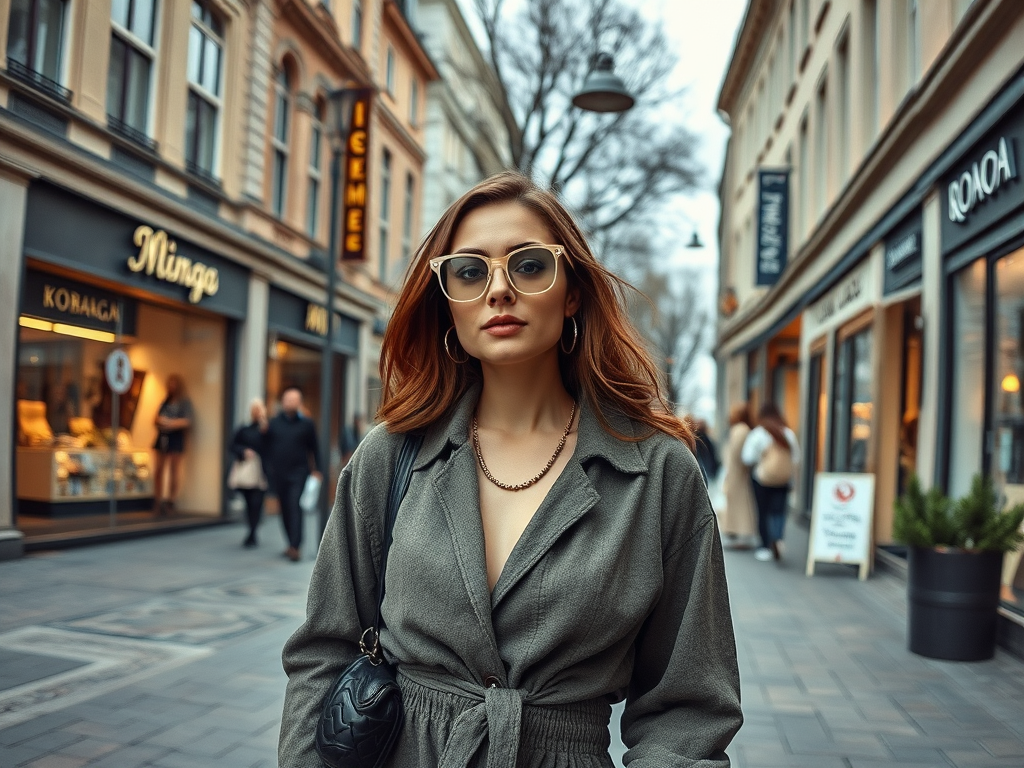In the digital era, luxury brands face an evolving landscape where traditional marketing strategies are increasingly insufficient. To thrive, these brands must embrace a sophisticated approach that blends aesthetics, storytelling, and advanced digital strategies. Understanding the distinct nature of luxury branding—characterized by exclusivity, craftsmanship, and a commitment to superior quality—can set the groundwork for effective online marketing. Crafting compelling narratives and engaging audiences in innovative ways is vital to creating lasting connections. As consumers become more discerning, it is essential for luxury brands to not only reach but also resonate. This article delves into the nuances of marketing luxury brands online, offering actionable strategies that elevate their presence in an increasingly competitive marketplace.
Understanding Luxury Branding

Luxury branding transcends the mere act of selling products; it weaves an intricate tapestry of perception, lifestyle, and emotion. Central to this understanding is the concept that luxury consumers desire more than just ownership; they seek experiences that resonate with their aspirations and values. Establishing a luxury brand in the digital space involves creating an atmosphere of distinction, satisfaction, and prestige. This atmosphere can significantly enhance how consumers view and interact with the brand online. However, successfully navigating the domain of luxury requires aligning every element of digital marketing with the luxurious image and ethos of the brand. Maintaining consistency across all platforms ensures that the brand remains desirable and exclusive.
The Role of Digital Presence in Luxury Marketing

A robust digital presence is not merely a trend; it is an essential component of a luxury brand’s success in the contemporary marketplace. In an age where consumers research products extensively online, having a polished website is fundamental—it must reflect the brand’s identity and values. Through attention to both visual and functional elements, luxury brands can create immersive experiences that extend beyond mere transactions. Not only do sophisticated layouts enhance aesthetics, but they also streamline navigation, ultimately guiding potential customers through the purchasing journey. Luxury brands can adopt an integrated approach by ensuring alignment between their digital marketing efforts and the luxurious experience they promise. This cohesion will keep the consumer engaged at every touchpoint.
Building a Luxe Website Experience
To captivate high-end consumers, a luxury website must prioritize both design and functionality. It’s crucial to offer an experience that surpasses industry norms, drawing visitors into the brand’s universe. Here are key considerations for building an exquisite online experience:
- Prioritize high-resolution visuals that showcase products articulately.
- Ensure fluid and intuitive navigation to enhance user experience.
- Incorporate storytelling elements to add depth to product descriptions.
- Utilize whitespace effectively to convey elegance and sophistication.
- Integrate a seamless checkout process that reflects luxury and convenience.
The Importance of Social Media Engagement
As communication channels evolve, luxury brands find social media to be a vital avenue for engagement. Beyond mere promotion, it allows brands to tell their story and foster a community around their unique offering. Engaging content on platforms like Instagram and Pinterest provides the visual stimulation that luxury consumers crave. These platforms also enable brands to showcase their personality, making it easier for potential customers to connect. However, the challenge lies in crafting authentic posts that reflect the brand’s ethos without diluting its exclusive nature. To maximize impact, brands must tailor their social media strategy to resonate with their target audiences while maintaining an air of sophistication.
Content Marketing Strategies for Luxury Brands
In the context of luxury marketing, content must be transcendent, appealing to consumers’ emotions and experiences. An effective content strategy encompasses various formats and themes that reflect the brand’s heritage and values. Among the many strategies available, high-quality visual content stands out as a cornerstone of luxury branding. Exceptional imagery and video not only attract attention but also cultivate an aspiration for the lifestyle entailed by luxury products. Moreover, brands can utilize compelling storytelling to create emotional connections with their audience, further nurturing loyalty. By presenting content that aligns with their identity, luxury brands can create a unique digital footprint that sets them apart.
| Content Type | Purpose | Example |
|---|---|---|
| Blog Posts | Educate and engage customers | Behind-the-scenes stories |
| Videos | Visually showcase products | Product launch highlights |
| Social Media Posts | Build community and brand engagement | Instagram lifestyle shots |
Influencer Collaborations
The rise of social media has transformed influencer marketing into a powerful tool for luxury brands. Successfully partnering with influencers can introduce a brand to niche audiences, fostering authentic connections. However, not every influencer suits every brand; alignment of values and aesthetics is paramount to a successful collaboration. Brands should seek influencers who embody the same ethos as their offerings, which will result in more meaningful and effective promotion. The trust and loyalty these influencers have cultivated with their followers can significantly enhance the product’s appeal. Ultimately, this strategy requires careful consideration and evaluation to yield the best results.
When selecting influencers, luxury brands should focus on three critical factors:
- Authenticity: Influencers must genuinely connect with the brand’s values.
- Relevance: Their audience should align with the target market.
- Engagement: Look for followers who actively interact with the influencer to ensure maximum outreach.
SEO Considerations for Luxury Brands
Implementing effective SEO strategies for luxury brands can pose unique challenges due to the need to maintain exclusivity while ensuring visibility. The online visibility of luxury brands hinges on understanding their audience’s search behavior and intent. Keyword research, tailored towards high-end consumers, is critical to finding terms that both attract interest and preserve the brand’s opulence. Additionally, optimizing for user intent allows luxury brands to create content that speaks directly to their consumers’ desires, enhancing their overall experience. To cultivate an effective SEO strategy, brands must focus on content quality and relevancy, solidifying their authority in the luxury market.
When conducting keyword research, luxury brands should focus on the following:
- Long-tail keywords that reflect specific high-end products.
- Terms synonymous with luxury, such as “exclusive,” “boutique,” and “bespoke.”
- Keywords that highlight emotional connections, such as “timeless elegance” or “crafted perfection.”
Conclusion
Effective online marketing for luxury brands requires a thoughtful blend of high-quality content, engagement, visual aesthetics, and strategic partnerships. By understanding the unique nature of luxury branding, companies can create meaningful connections with their target consumers in the digital space. Each element, from the user-friendly website to powerful influencer collaborations, plays a pivotal role in reinforcing the brand’s image. As luxury brands continue to navigate their digital strategies, maintaining a balance between sophistication and accessibility remains vital. Eventually, such efforts will not only enhance the customer experience but also deepen brand loyalty and market reputation.
Frequently Asked Questions
- What makes luxury brand marketing different from regular brand marketing? Luxury brand marketing focuses on exclusivity, emotional storytelling, and high-quality presentation, emphasizing the brand’s heritage and values.
- Why is social media important for luxury brands? Social media allows luxury brands to visually showcase their products, engage with customers on a personal level, and build a community around their brand story.
- How can luxury brands optimize their websites for SEO? Luxury brands should conduct targeted keyword research, optimize for user intent, and ensure high-quality visuals to meet both aesthetic and functional needs.
- What types of content resonate most with luxury consumers? High-quality visual content, engaging storytelling, behind-the-scenes insights, and exclusive offers tend to resonate well with luxury consumers.
- How can luxury brands effectively choose influencers? Brands should look for influencers that share similar values and aesthetics and whose audience fits within the target customer profile for the luxury market.
